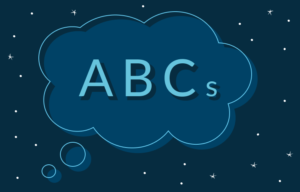How many times have you thought to yourself: I should do this, or he shouldn’t have done that? This is the thinking trap that we like to call should-ing on yourself.
When you “should on” yourself, you put this unreasonable expectation on yourself or others that is sometimes impossible to fulfill. Who decides what you “should” and “shouldn’t” do? What made you believe that you should do one thing and not the other? Often, it’s not even realistic.
In reality, there is no “should,” especially when it comes to living life with migraine. All you can do is your best.
Some examples of “should” thoughts that you might have about living with migraine are:
- “I shouldn’t be so weak and have to call out of work.”
- “I should be able to tolerate this pain and the migraine symptoms better.”
- “He should understand that I’m in pain and nauseated and light hurts, and that I need him to step it up a little more.”
We fall into using “should” statements when we don’t want to accept reality as it is. Instead, try to practice radical acceptance, something we’ll go more in-depth into later on. When we say “should,” we usually mean “wish.” I wish I didn’t have to call out of work. I wish I didn’t have this pain. I wish he understood.
Next time you catch yourself in the middle of a should-storm, catch yourself wishing that reality was different from how it is. You can try telling yourself: “I may wish things were different, but this is my reality. All I can do right now is make the most of it.”
Download the Juva app to get access to more self-guided CBT lessons that can help you learn how to manage the distress and disability that often accompany life with migraine. Juva’s innovative app uses your phone’s technology to measure your biometrics (like heart rate) while guiding you through evidence-based cognitive and behavioral strategies for migraine management.
Sign up for a FREE year of Juva Health today.





